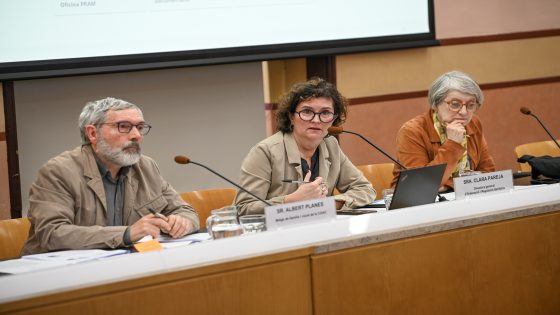On April 1, 2025, the Departament de Salut released its annual report on the application of the Euthanasia Regulation Law (LORE) in Catalonia. The findings reveal a significant rise in requests and provisions for assisted dying, raising questions about the evolving attitudes towards end-of-life choices.
- Significant increase in euthanasia requests
- 358 requests for assistance to die
- 142 euthanasia procedures performed in 2024
- Majority of applicants were women
- Most procedures conducted in Barcelona
- Ongoing improvements needed for LORE implementation
With 358 requests made in 2024, this marks a 63% increase from the previous year. What does this mean for individuals seeking autonomy in their final days?
Understanding the Rise in Euthanasia Requests in Catalonia
Why are more people seeking assisted dying in Catalonia? The latest report indicates a growing acceptance of euthanasia as a legitimate option for those suffering from terminal illnesses. As society grapples with the ethics of end-of-life care, this trend invites deeper discussions about personal rights and healthcare policies.
Key Statistics on Euthanasia in Catalonia for 2024
The report outlines critical statistics that reveal the profile of those requesting assisted dying:
- 358 total requests, a 63% increase from 2023.
- 189 requests approved, up by 73%.
- 142 provisions carried out, a 51% increase.
- Majority of requests (62%) came from primary care settings.
Demographics of Euthanasia Requestors in Catalonia
In 2024, the demographic breakdown of those requesting assisted dying shows a notable trend. Over half of the applicants were women, averaging 75 years old, while men made up 47% with an average age of 74. This data underscores the importance of understanding who is seeking these services and why.
Healthcare Providers’ Perspectives on Euthanasia
Healthcare professionals have expressed their views on the rising requests for euthanasia. Clara Pareja, from the Departament de Salut, emphasized the commitment to ensuring access to assisted dying while improving the application of LORE. Albert Planes, a family doctor, highlighted the significance of informing patients about their rights, including the option to die at home surrounded by loved ones.
Future Implications for Euthanasia Legislation
The increasing number of euthanasia requests in Catalonia raises questions about future legislation and healthcare practices. As more individuals seek this option, there is a pressing need for ongoing discussions about ethical implications, patient rights, and healthcare accessibility. How will these Trends influence similar debates in the U.S.?






























